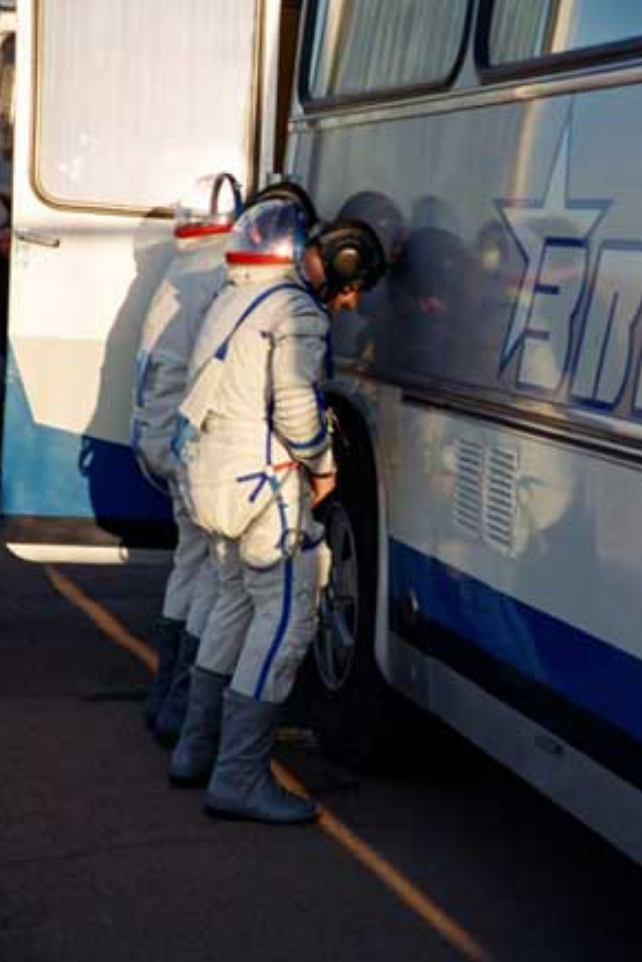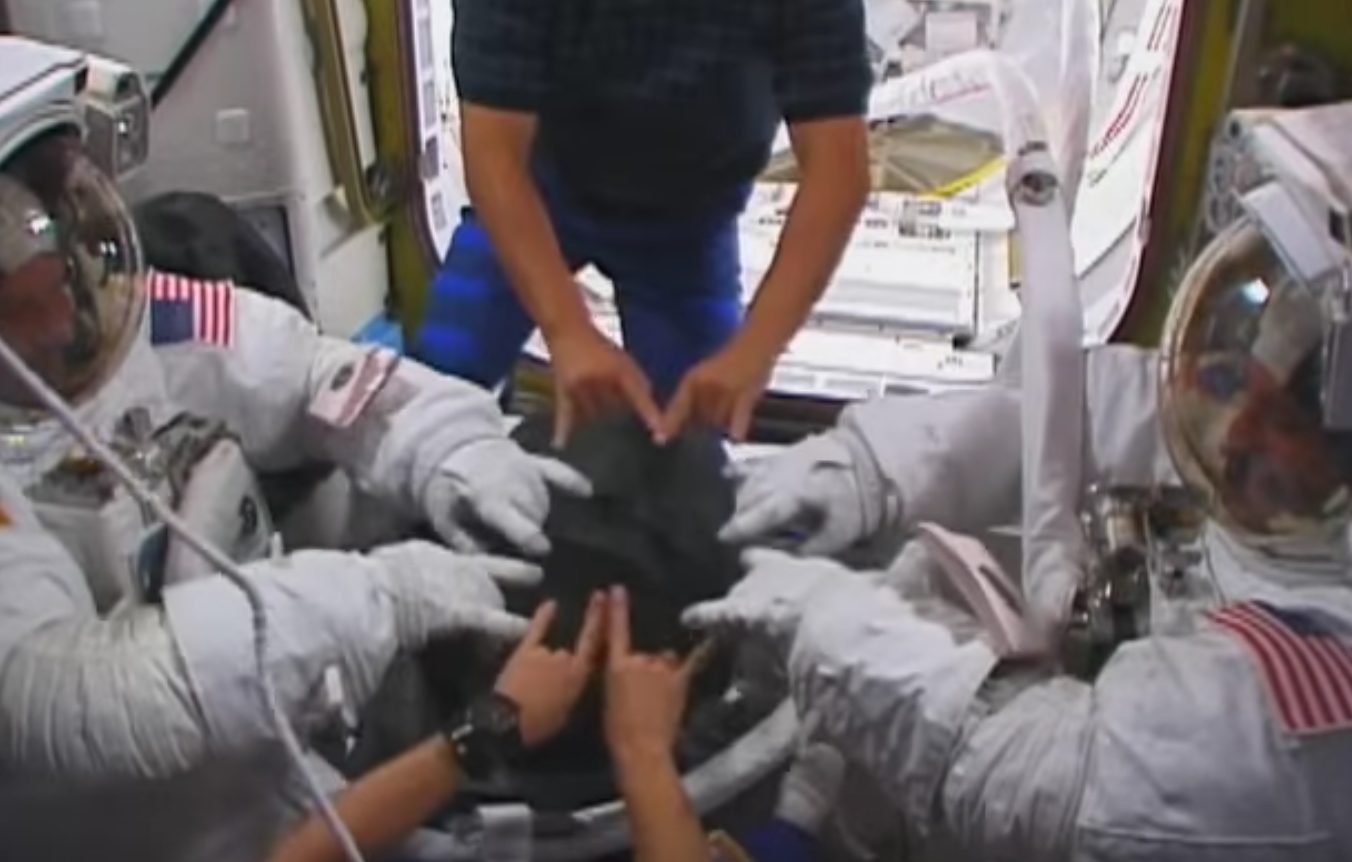
Yes, cosmonauts apparently all pee on the back right tire of the bus that carries them to the launch pad, before they take off.
At least the guys do; but the ladies are said to bring a vial of urine to pour on the tire.
It’s a ritual.
I hadn’t thought much about rituals among astronauts (or cosmonauts) until I saw part of the following video — the so-called pagan rites that they engage in prior to any extra-vehicular activity (EVA in NASA-speak) — “to appease the EVA gods,” as the narrator puts it.
These little ceremonies, very, very important to ensure mission success — if you do them right.

Whether you call them rituals, ceremonies, traditions, customs, or superstitions, it’s rather curious behavior no? (By the way, calling them one or the other can be just as curious — what’s at stake in what we name these actions?)
So why do they do it?
Well, with regard to the Russians, the reason is often cited as…

But this common answer to the why question isn’t really an answer; instead, it’s an account of the origins of the action — not an answer to why people continue to do it.
It’s like people who explain some behavior by saying “Well, it’s a custom.” That’s not much of an explanation, if you think about it — it’s just a rephrase of the observation that something continuously happens. To answer the why question we need to offer an explanation for why it is a custom, i.e., why people keep doing it.
Like why they all pee on the tire.
This semester Prof. Ikeuchi is teaching a seminar on theories of ritual and in the Fall Prof. Touna will be offering a seminar on theories of myth (we’ll soon be releasing the Fall 2017 course line-up, by the way) — both courses challenge students to consider just why we do some of the things that we do.
Including all sorts of things that the students themselves surely do — maybe before a test, for example, or maybe the way they tell tales about their friends and family…
So what do you think? Do you have a theory that can account for these actions? Sure, the audience laughs when the fellow narrates the pre-spacewalk rites, but the astronauts still faithfully do them nonetheless. (I’m guessing that, in some surprising ways, their sense of “mission success” might actually depend on everyone doing them and seeing each other do them correctly.)
For whatever the reason Gagarin himself went (he was the first person in space, by the way [back on Apr. 12, 1961]), why repeat the performance for decades to come?
(If you think about it, it’s kind’a curious that when you’re about to go [into space], you first stop and go [here on earth]….)
Of course, if it’s a useful theory, it’ll be able to explain a lot more than just those two episodes of repetitive, rule-governed behaviors. But they’re a good place to start.